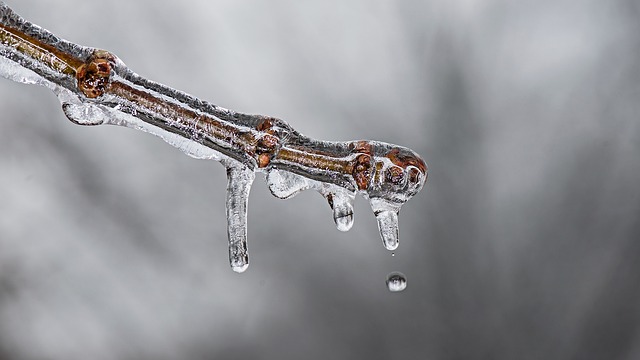Cold water immersion, including practices like the cold plunge and cryotherapy, is a natural and effective anti-aging solution. It stimulates blood flow, boosts collagen production, and enhances skin elasticity, reducing wrinkles and fine lines while improving overall skin health. Regular cold exposure offers anti-inflammatory and antioxidant benefits, promoting skin firmness, tone, and texture. Incorporating cold therapy into skincare routines provides a cost-effective, non-invasive alternative to achieve youthful, vibrant skin.
“Unleash the power of cold for a younger, more elastic complexion. This article explores the science behind skin elasticity and its natural decline with age, offering a refreshing solution: cold water immersion as an effective anti-aging strategy. We delve into the profound benefits of cold plunges, highlighting their potential to reduce wrinkles, improve skin texture, and foster overall skin rejuvenation. Discover how this simple yet powerful technique can transform your skincare routine and unveil a vibrant, youthful glow.”
Understanding Skin Elasticity and its Decline with Age
Skin elasticity is a key component of healthy, youthful-looking skin. It refers to the skin’s ability to stretch and bounce back to its original shape after being stretched. This vital function is primarily maintained by collagen and elastin fibers, which provide structural support to the skin. As we age, however, natural processes like oxidative stress, inflammation, and a decline in production of key proteins contribute to a gradual loss of elasticity. This aging process leads to fine lines, wrinkles, and sagging skin.
The passage of time isn’t the only factor affecting skin elasticity; environmental factors play a significant role too. Prolonged exposure to pollution, sun damage, and harsh weather conditions can accelerate the breakdown of collagen and elastin fibers. Incorporating practices like cold water immersion—often in the form of a cold plunge—into your skincare routine offers a promising solution for counteracting these aging effects. Cold therapy has been shown to stimulate blood flow, boost collagen production, and enhance skin firmness and elasticity, thereby reducing the appearance of wrinkles.
The Role of Cold Water Immersion in Skin Rejuvenation
Cold water immersion, often in the form of a cold plunge or cryotherapy, has emerged as a powerful tool for skin rejuvenation and anti-aging. This therapeutic practice involves submerging oneself in cold water, typically below 59°F (15°C), for a short period. The immediate stimulation of blood vessels during a cold plunge promotes vasoconstriction, which helps reduce inflammation and supports the growth of new collagen fibers. Collagen is a vital protein for maintaining skin elasticity and a youthful appearance, making it an effective strategy to combat signs of aging such as wrinkles.
Regular exposure to cold water can also enhance lymphatic drainage, encouraging the body’s natural detoxification processes. This promotes a healthier complexion by reducing water retention and improving the overall texture of the skin. The anti-inflammatory and antioxidant effects of cold therapy contribute to a calmer, more radiant complexion, making it an appealing solution for those seeking a natural approach to skincare and a more youthful appearance.
Scientific Evidence: Benefits of Cold Plunges for Aging Skin
Cold water immersion, also known as a cold plunge, has gained attention in recent years as a powerful tool for anti-aging and skin rejuvenation. Scientific studies have backed up the benefits of this practice, showing that it can significantly improve the appearance and health of aging skin. One key mechanism is its impact on collagen production. Cold exposure prompts the body to release growth hormones, which stimulate fibroblasts to produce more collagen and elastin—proteins essential for maintaining skin structure and elasticity.
Regular cold plunges can help reduce the depth and visibility of wrinkles, improve skin tone and texture, and even enhance blood circulation, giving the skin a healthier glow. Research suggests that the anti-inflammatory properties of cold water therapy may also play a role in minimizing age-related skin damage, such as fine lines and sagging. This natural approach to skincare offers an effective and non-invasive way to combat the signs of aging, leaving your skin feeling refreshed, toned, and more youthful-looking.
Incorporating Cold Therapy into Your Skincare Routine
Incorporating cold therapy into your skincare routine can offer a game-changing approach to achieving youthful, vibrant skin. A cold plunge or water immersion in icy temperatures has gained popularity for its anti-aging benefits and ability to enhance overall skin health. This simple yet powerful practice can significantly impact your skin’s elasticity and appearance. By exposing your skin to cold water, you stimulate a response that promotes collagen production and boosts blood circulation, leading to a more supple and firm complexion.
Cold water therapy for aging skin is a natural way to combat the visible signs of aging. The shock of cold temperature causes blood vessels to constrict, reducing inflammation and minimizing the appearance of fine lines and wrinkles. Regular cold plunges can also help improve skin tone and texture, making it an effective treatment for those seeking a more rejuvenated and radiant look. This easy-to-incorporate skincare step is a cost-effective alternative to invasive procedures, allowing you to embrace a youthful glow from within.
Cold water immersion emerges as a powerful ally in the quest for youthful, elastic skin. By incorporating this simple yet effective technique into your skincare routine, you can harness the benefits of cold therapy to reverse the signs of aging. The scientific evidence is clear: cold plunges stimulate collagen production, enhance skin firmness, and reduce wrinkles, offering a natural and rejuvenating solution for achieving a glowing complexion. Embrace the refreshing power of cold exposure for a more vibrant, supple, and ageless skin.
